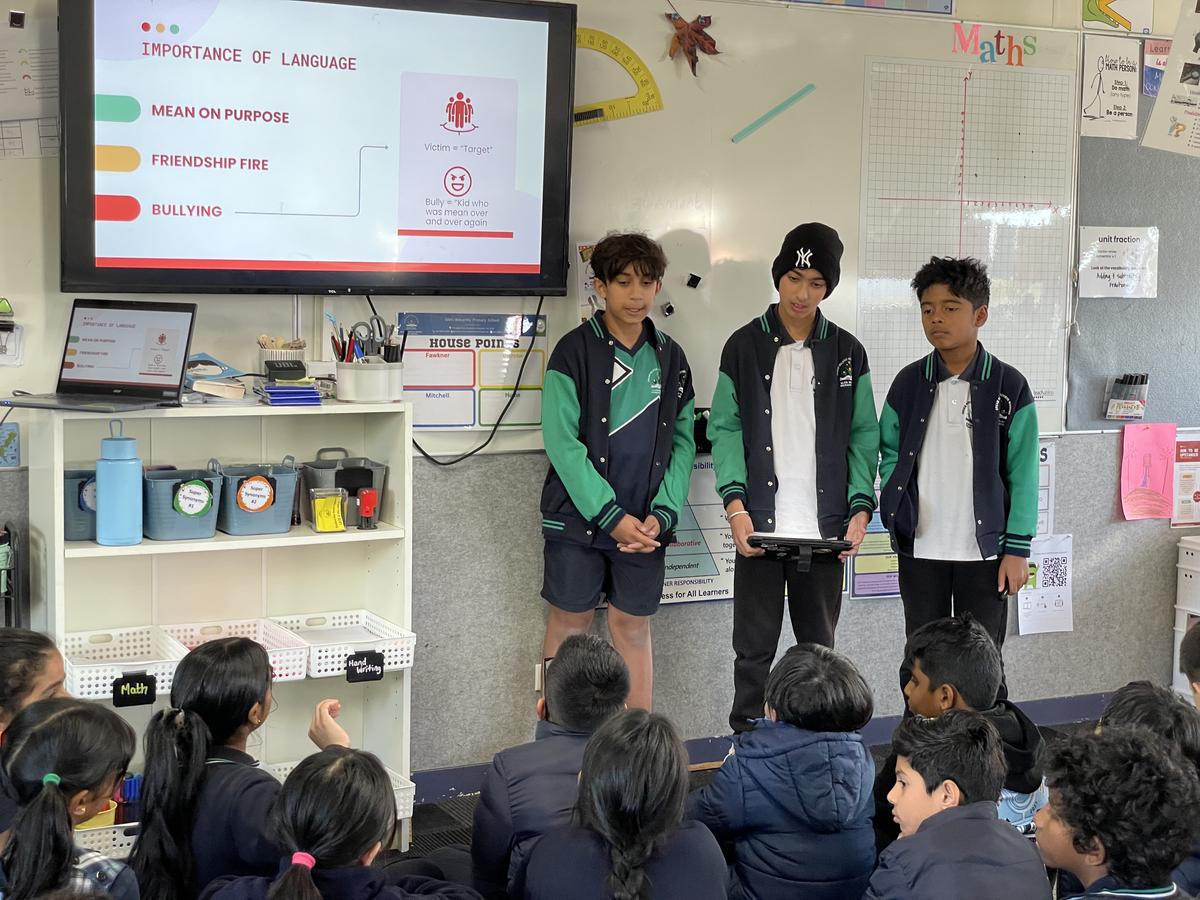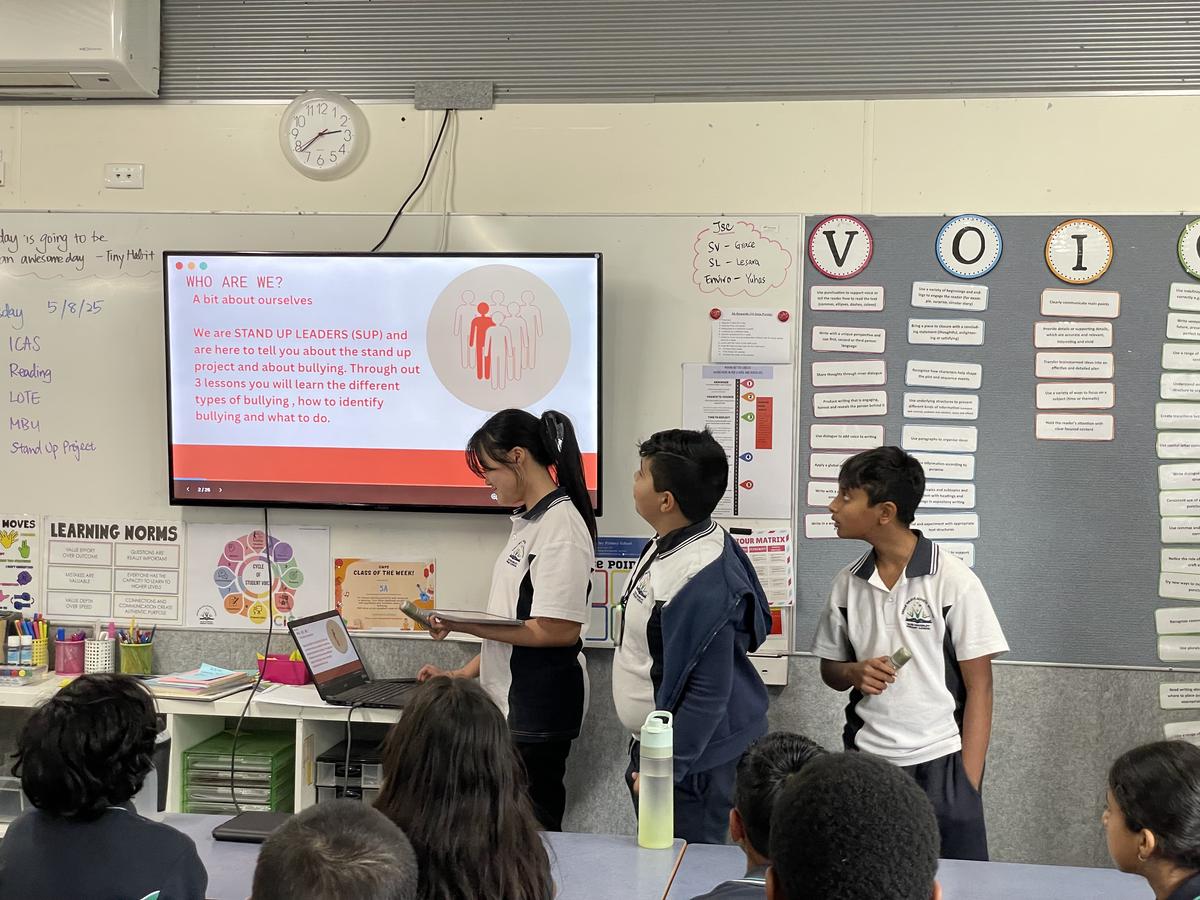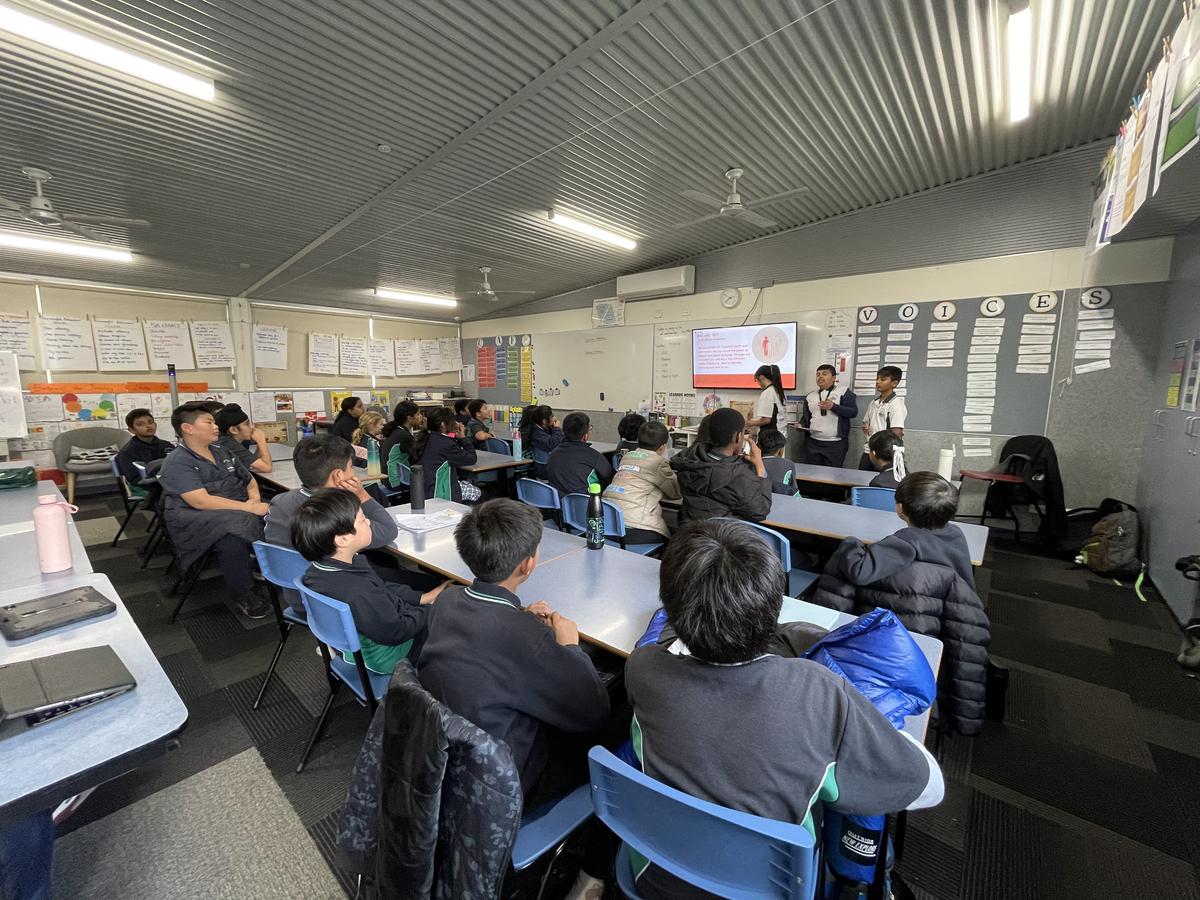The Stand Up Project
By Roland Lewis

The Stand Up Project
By Roland Lewis
At Glen Waverley Primary School, we are deeply committed to creating a safe, inclusive and respectful environment where every student feels they belong. One of the ways we bring this commitment to life is through The Stand Up Project—a peer-led initiative that empowers students to take an active role in shaping our school culture.
The philosophy of The Stand Up Project aligns beautifully with our Whole School Approach to Wellbeing. It reinforces key pillars of our work, including our use of The Resilience Project and its focus on Gratitude, Empathy, Mindfulness, Emotional Literacy and Connection. The project also strengthens our language around respectful relationships, linking directly with our implementation of School-Wide Positive Behaviour Support and Respectful Relationships.


This term, our trained Year 6 Stand Up Project Leaders stepped into classrooms—not as students, but as teachers. Across Prep to Year 5, they led their first lesson in a three-part series designed to build shared language, clarity, and confidence in how we understand and respond to social challenges.
Lesson 1: Decoding Behaviour, our leaders taught students how to identify and talk about three key types of behaviour:
Bullying – repeated and targeted behaviour that creates a power imbalance
Lesson 2: The Four Upstander Actions
Students learned safe and practical strategies for responding to poor behaviour — Direct, Distract, Delegate, and Delay. These tools empower students to act with confidence and compassion when they witness situations that don’t feel right.
Lesson 3: The Power of Kindness and Inclusion
Students reflected on how everyday actions can build a more positive school community. Each student made a personal pledge:“This week, I’ll be an Upstander by…” — reinforcing their agency and commitment to creating a kinder, more inclusive environment.


With maturity, presence and a strong sense of purpose, our leaders guided their younger peers through real-life scenarios, discussions, and reflection. The goal was to give all students—not just those in leadership roles—the words, understanding and emotional safety to talk about how they’re feeling, what’s happening around them, and how to get support when needed.
Over the next two weeks, our Stand Up Leaders will return to classrooms to deliver the next two lessons, covering the Four Upstander Actions (Direct, Distract, Delegate, Delay) and the impact of kindness and inclusion.
This work is more than a set of lessons. It is a reflection of our belief that students are not only learners, but leaders—that with the right support and scaffolding, they can be powerful drivers of cultural change.
We’re incredibly proud of our Year 6 students and grateful for the support of our teaching staff who have welcomed them into classrooms as co-educators. The future of our school culture is being built right now, and it’s being led by the students themselves.

